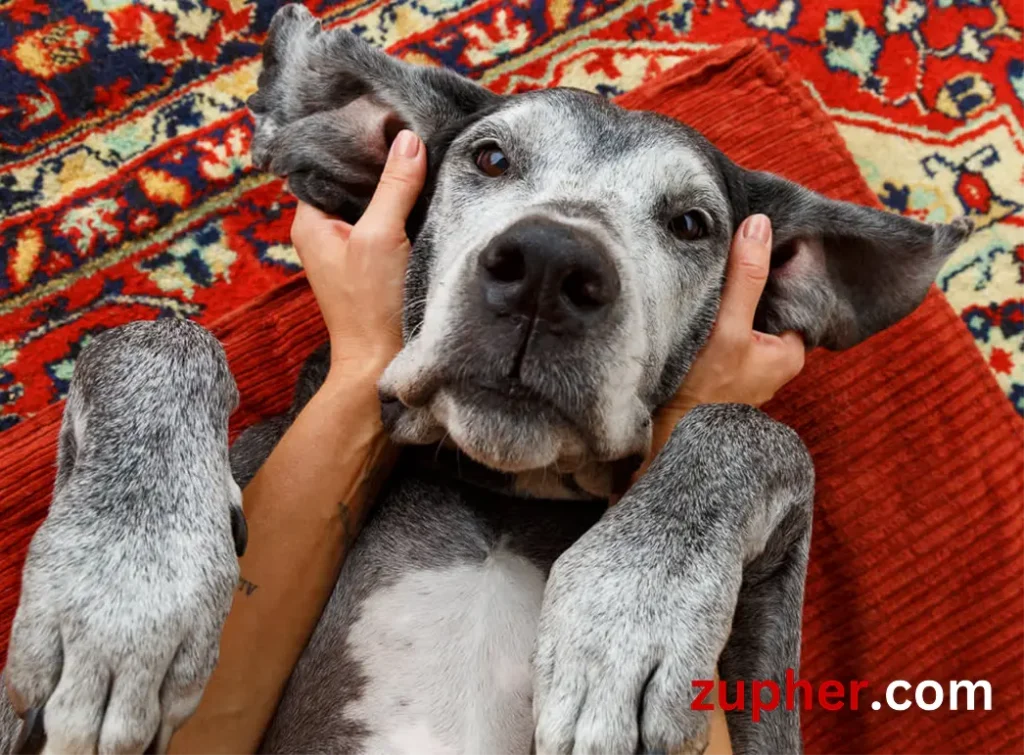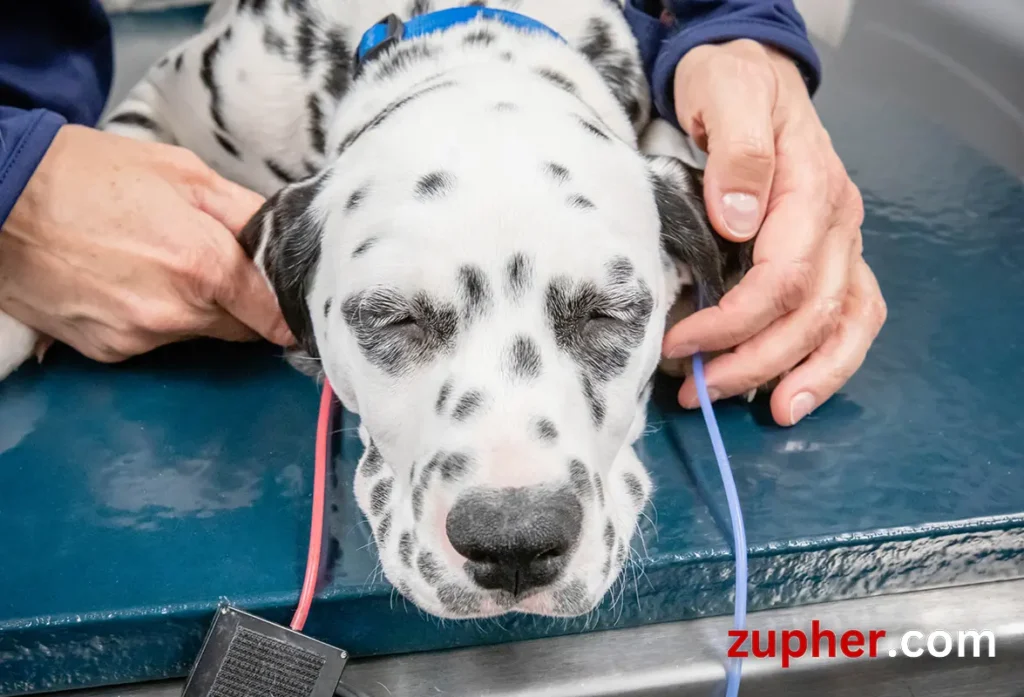How to Provide Proper Care for Hearing-Impaired Dogs?

Introduction
Hearing impairment in dogs means they can’t hear well or at all. It’s important to give them proper care because they need special help to live happy and healthy lives. In this article, we’ll talk about why this care matters and what we can do to help our furry friends.
A. Brief overview of hearing impairment in dogs
When a dog has trouble hearing, it affects how they understand the world around them. Some dogs are born deaf, while others lose their hearing due to age, injury, or illness. This means they might not respond to sounds like their name or commands.
B. Importance of providing proper care for hearing-impaired dogs
Hearing-impaired dogs rely more on their other senses, like sight and smell, to navigate their surroundings. They might need extra attention to keep them safe and happy. Giving them the right care helps them feel loved and included in our families.
C. Preview of key topics covered in the article
We’ll talk about different ways to communicate with hearing-impaired dogs, like using hand signals instead of voice commands. We’ll also discuss training methods and special tools that can make life easier for both the dog and their owner. By understanding their needs, we can make sure these special pups live their best lives.

Understanding Hearing Impairment in Dogs
A. Causes of hearing impairment in dogs
Hearing impairment in dogs can happen for various reasons. Some are born with it, while others develop it due to old age, injury, or certain illnesses. Things like ear infections or exposure to loud noises can also lead to hearing loss in dogs.
B. Common breeds prone to hearing loss
Certain dog breeds are more likely to experience hearing loss than others. Breeds with white coats and blue eyes, like Dalmatians and Australian Shepherds, are often predisposed to hearing problems. Additionally, older dogs of any breed are more susceptible to hearing loss as they age.
C. Signs and symptoms of hearing impairment in dogs
It’s essential to recognize the signs of hearing impairment in dogs so we can provide them with the care they need. Some common signs include not responding when called, being easily startled by sudden noises, and sleeping heavily without noticing sounds around them. Dogs with hearing loss may also become more reliant on their sense of smell and touch to navigate their environment.

Creating a Supportive Environment
Hearing-impaired dogs need an environment that helps them feel safe and understood. By making some adjustments at home and using visual cues, we can make life easier for them.
A. Making adjustments to the home environment
- Ensuring safety and security: Remove hazards like sharp objects or clutter that could harm your dog. Use baby gates or barriers to prevent them from accessing dangerous areas.
- Minimizing noise distractions: Keep the environment calm by reducing loud noises like TV or music. Avoid sudden loud noises that might startle your dog.
B. Implementing visual cues and signals
- Training techniques for visual commands: Teach your dog simple hand signals for basic commands like sit, stay, and come. Use treats and positive reinforcement to help them learn.
- Using hand signals effectively: Be consistent with your hand signals and use them every time you give a command. Make sure your dog can see your hands clearly, and practice regularly to reinforce their understanding.

Communication and Training Strategies
Communication and training for hearing-impaired dogs require special methods to help them understand commands and behaviors positively.
A. Importance of positive reinforcement training
- Reward-based methods for behavior modification: Instead of scolding, reward your dog with treats or praise when they follow commands correctly. This motivates them to do the wanted action again.
B. Utilizing vibration and scent cues
- Incorporating tactile cues into training sessions: Use gentle touches or vibrations to get your dog’s attention or signal commands. For example, tapping the ground can mean “sit.”
- Exploring scent-based communication techniques: Introduce scents associated with specific commands, like placing a treat near the scent when teaching a new behavior. This helps your dog understand what you want them to do even without hearing.

Veterinary Care and Health Management
Regular visits to the vet are essential for hearing-impaired dogs to ensure they stay healthy and happy.
A. Regular check-ups and screenings
- Monitoring for secondary health issues: Regular check-ups help catch any health problems early, such as ear infections or dental issues, which can affect hearing-impaired dogs more severely.
B. Special considerations for medical treatments
- Adapting medication regimens for hearing-impaired dogs: Some medications may cause side effects like dizziness or upset stomach, which can be challenging for dogs who rely heavily on their other senses.
- Addressing potential complications during surgeries: Hearing-impaired dogs may need extra care and attention during surgeries to prevent complications related to anesthesia or post-operative care.
Emotional Support and Socialization
Hearing-impaired dogs need emotional support and socialization to feel confident and happy in their environment.
A. Building trust and confidence
- Strengthening the bond between owner and dog: Spend quality time with your dog, using positive reinforcement to build trust and confidence. This connection makes them feel safe and cherished.
B. Facilitating positive social interactions
- Introducing hearing-impaired dogs to other pets and people: Slowly introduce your dog to new animals and people in a controlled environment, using treats and praise to create positive associations.
- Participating in structured socialization activities: Engage in activities like group training classes or supervised playdates to help your dog learn appropriate social behaviors and build confidence in different situations.
Resources and Support Networks
Owners of hearing-impaired dogs need to know where to find help and support when needed.
A. Accessing information and assistance
- Online resources for hearing-impaired dog owners: Websites and forums offer valuable information and advice on caring for hearing-impaired dogs, including training tips and product recommendations.
- Support groups and communities for sharing experiences: Joining groups of other owners facing similar challenges can provide emotional support and practical advice for coping with the unique needs of hearing-impaired dogs.
B. Exploring assistive devices and technologies
- Hearing aids and amplification devices for dogs: Some specialized devices can help improve a hearing-impaired dog’s ability to hear or detect sounds in their environment.
- Innovative tools for enhancing communication and mobility: From vibrating collars to GPS trackers, there are various gadgets designed to assist hearing-impaired dogs in communicating with their owners and navigating their surroundings safely.
Conclusion
In wrapping up our discussion on caring for hearing-impaired dogs, let’s recap the important points, encourage love and care for these special pets, and reflect on the significance of empathy in pet ownership.
A. Recap of key points discussed
Throughout this guide, we’ve learned about the unique needs of hearing-impaired dogs, including creating a supportive environment, using positive reinforcement training, and accessing resources for assistance.
B. Encouragement for providing love and care to hearing-impaired dogs
It’s essential to recognize the value of every dog, regardless of their hearing abilities. By providing love, patience, and understanding, we can help hearing-impaired dogs live fulfilling lives as cherished members of our families.
C. Final thoughts on the importance of empathy and understanding in pet ownership
Empathy and understanding are fundamental aspects of being a responsible pet owner. By putting ourselves in our dog’s shoes and recognizing their individual needs, we can provide the best possible care and ensure their happiness and well-being.
People also ask
How can I help a hearing-impaired person?
Offer support, use clear communication, and consider their needs in various situations.
How do service dogs help the hearing impaired?
Service dogs alert them to important sounds and provide companionship.
How do you deal with hearing problems?
Consult a doctor, consider treatments like hearing aids, and adapt communication methods.
How do you train a deaf dog to hear?
Use visual cues like hand signals and positive reinforcement training techniques.
How do you quiet a deaf dog?
Redirect their attention, use vibration cues, and avoid startling them with sudden noises.



